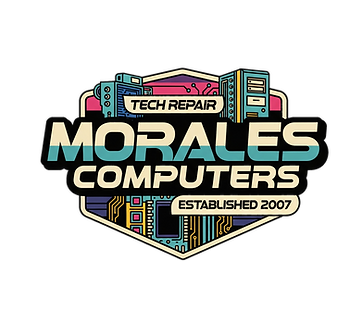Expert Solutions for Gaming PC Issues
- Jul 21, 2025
- 4 min read
Are you facing frustrating issues with your gaming PC? You're not alone. Many gamers encounter problems that can hinder their gaming experience. Whether it's performance issues, crashes, or hardware failures, having a clear understanding of how to troubleshoot and fix these issues is crucial. In this article, we'll explore expert solutions for resolving gaming PC issues.
Gaming PC Troubleshooting
Troubleshooting your gaming PC can be daunting, especially when it seems like there's a glitch at every turn. However, many common problems have simple solutions. Here are some frequent issues you might encounter:
Slow Performance: If your games are lagging or taking longer to load, this could be a sign of insufficient RAM or a slow hard drive. Sometimes, too many background processes can also eat up your system resources.
Crashes and Freezes: Frequent crashes can stem from overheating, failing hardware, or software conflicts. It's essential to check the system temperature and ensure components are running smoothly.
Graphics Issues: Flickering, tearing, or poor visuals often signal problems with your graphics card or drivers. Ensuring your graphics drivers are updated can resolve many of these problems.
Internet Connectivity Issues: Online gaming requires a stable connection. If your games are lagging or disconnecting frequently, it could be due to issues with your Wi-Fi or Ethernet connection.
No Sound or Poor Audio Quality: Sound issues can stem from incorrect audio settings or failing sound hardware. It's good to check your system audio settings first before delving deeper.

How to Diagnose Your Gaming PC Problems
To diagnose issues effectively, follow these steps:
Listen to Your PC: Pay attention to any unusual sounds coming from your PC, like beeping or grinding noises. Beeping often indicates a hardware issue.
Monitor Temperatures: Use applications like HWMonitor or MSI Afterburner to keep tabs on CPU and GPU temperatures. Ideal temperatures should generally be below 80°C for performance components.
Check for Software Conflicts: Sometimes software updates can conflict with existing programs. Review recent updates or changes you've made before experiencing issues.
Test Your Hardware: If possible, run benchmarks on your hardware using programs like 3DMark or CPU-Z to verify performance levels. This can highlight any evident deficiencies.
Use Safe Mode: Booting in Safe Mode can help you identify if software or hardware is the problem. If your PC runs fine in Safe Mode, the issue may relate to a software driver or settings.
By adopting a systematic approach, you can identify and remedy the problems affecting your gaming PC.

Common Hardware Issues and Solutions
Several hardware issues can plague gamers. Here are some solutions:
Overheating: If your computer is overheating, check that all fans are operational and clear of dust. Investing in a good cooling system, like additional fans or liquid cooling, can help maintain optimal temperatures.
Power Supply Problems: If your gaming PC isn't powering on, it could indicate a faulty power supply. Testing your power supply with a tester can verify its condition.
Graphics Card Failures: A malfunctioning graphic card can lead to visuals issues. Reseating the card or testing it in another system can help verify its health.
RAM Issues: Faulty RAM can lead to system crashes or errors. Use Windows Memory Diagnostic Tool or MemTest86 to test your RAM's functionality.
Hard Drive Health: If you're encountering long load times or system instability, checking your hard drive's health using CHKDSK or SMART tools can reveal any underlying problems.

Software Solutions for Gaming PC Problems
On the software side, many issues can stem from outdated drivers, bloated software, or incorrect settings. Here's how to tackle them:
Update Drivers: Keeping your graphics and system drivers updated can resolve many gaming issues. Use manufacturer's websites or tools like GeForce Experience for easy updates.
Adjust In-Game Settings: Lowering graphics settings can improve performance on older hardware. Experiment with settings like resolution and texture quality to find the right balance.
Remove Unused Software: Uninstall programs that you no longer use. This can free up system resources and help improve performance.
Scan for Malware: Malware can significantly affect your system performance. Running an anti-virus scan can help detect and remove harmful software.
Consider a System Reset: If problems persist, resetting your operating system can provide a fresh start. Just be sure to back up essential files beforehand.
Being proactive about your software can help keep your gaming experience smooth.
Keeping Your Gaming PC in Shape
Once you’ve resolved existing issues, consider implementing some maintenance strategies:
Regular Cleaning: Regularly clean your PC's interior to prevent dust buildup, which can lead to overheating and hardware malfunctions.
Organize Your Cables: Proper cable management not only looks good but can also improve airflow within your PC case.
Backup Your Data: Regular backups can protect your data in case of hardware failures. Using cloud solutions or external drives can help ensure your data is safe.
Stay Informed: Follow gaming and tech communities online for tips and tricks to troubleshoot and maintain your setup.
Invest in Quality Components: Quality hardware is less likely to fail. Consider investing a little more in high-quality components that can withstand the rigors of gaming.
Having a solid maintenance routine can extend the life of your PC and enhance your overall gaming experience.
Final Thoughts
While gaming PC issues can be frustrating, many problems are manageable with the right approach. By diagnosing issues correctly and applying the solutions outlined, you can get your gaming rig back to optimal usability. If significant problems persist, consider reaching out to specialized services for assistance. A well-maintained gaming PC can provide countless hours of enjoyment, so keep it in top shape and happy gaming!










Comments